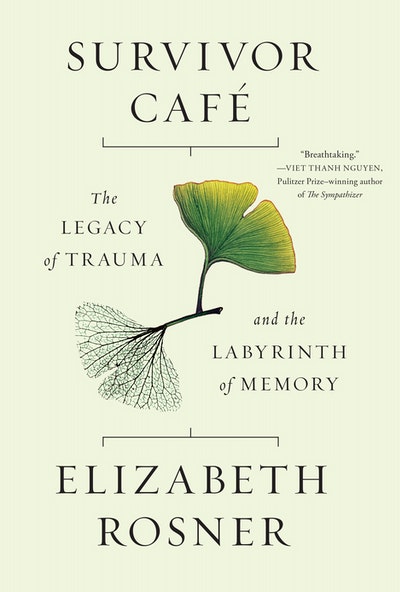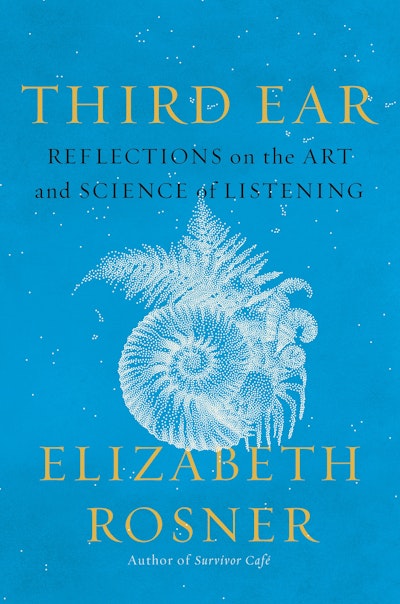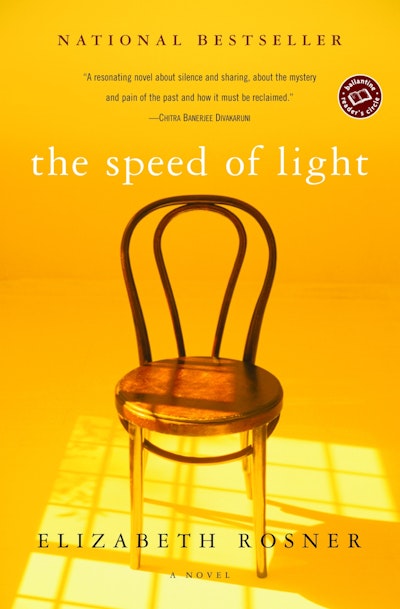- Published: 12 September 2017
- ISBN: 9781619029545
- Imprint: Catapult
- Format: Hardback
- Pages: 304
- RRP: $49.99
Survivor Café
The Legacy of Trauma and the Labyrinth of Memory
- Published: 12 September 2017
- ISBN: 9781619029545
- Imprint: Catapult
- Format: Hardback
- Pages: 304
- RRP: $49.99
Praise for Survivor Café A Best Book of 2017 (San Francisco Chronicle) A Finalist for the National Jewish Book Award A Most Notable Nonfiction by Bay Area Authors Selection (East Bay Times) “Rosner’s memoir, which combines moving personal narrative with illuminating research into the impact of mass trauma on a personal and cultural scale, is imbued with urgency, sincerity, heartache, and heart.” —San Francisco Chronicle, 1 of 100 Best Books of 2017 “Mixing the personal with the historical and the literary with the scholarly, Rosner achieves a breathtaking overview of events as varied as the Holocaust, the Vietnam War, the Rwandan genocide, and Japanese American internment. Her impressive, highly readable Survivor Café takes on important issues of atrocity, trauma, and memory, rendering them all with such great clarity and intimacy that the reader will not soon forget them, or this powerful book.” —Viet Thanh Nguyen, Pulitzer Prize–winning author of The Sympathizer “This is a personal exploration for Rosner, but also an exploration of the commonalities found in the children of survivors.” —Read it Forward “Survivor Café is an exercise in mapmaking, in identifying convergent paths in apparently disparate legacies left by the world’s humanitarian disasters . . . [Rosner] asks us to look inside ourselves, to learn from the past, to forgive, and to understand the deep connections binding us to our past, our future, and to all other things.” —Lilith Magazine “Survivor Café is a beautifully expressed personal examination of how trauma is passed down through generations...An exquisite read.” —The Daily Gazette “In deep fissures and dark alleys having to do with multigenerational trauma, anti–Semitism, racism, terrorism, torture, death and loss, Berkeley writer Elizabeth Rosner uncovers, improbably, hope and connection.” —The Mercury News “There’s been a slew of research examining the genetic effects of psychological trauma, but author Elizabeth Rosner is among the first to take a deep dive into the personal implications of such inheritance with her stunning new book, Survivor Café: The Legacy of Trauma and the Labyrinth of Memory.” —Orange County Register “Deeply moving.” —Berkeleyside “Rosner’s writing is crafted like the poet she is, and her ability to meld and transcend her own story with those of survivors of wars, slavery, and genocide is nothing less than brilliant and more importantly, healing.” —ACEs Connection “Rosner demonstrates a rare blend of scholarly assessment and personal revelation, tempering her singular passion with an encompassing mercy. In this important and vital contribution to the conversation about legacy and responsibility, Rosner distills the magnitude of such burdens and defines the scope of memorialization with an elegance and eloquence that reverberates with both depth and nuance.” —Booklist (starred review) “A thoughtful, probing meditation on the fragility of memory and the indelible inheritance of pain.” —Kirkus Reviews “Novelist Rosner (Electric City) shines an unblinking light on the most horrific of 20th–century crimes and asks: What is the intergenerational legacy of trauma? . . . She considers art, anniversaries, memorials, and psychotherapy, but the most powerful technique she finds for dealing with trauma is simply telling the story behind it . . . Themes of memory, language, and the bodily imprint of trauma are powerful, as are Rosner’s accounts of revisiting Buchenwald with her father . .





